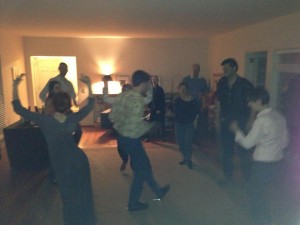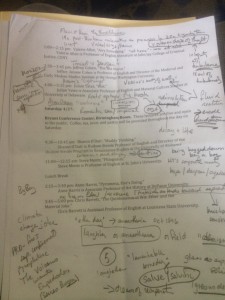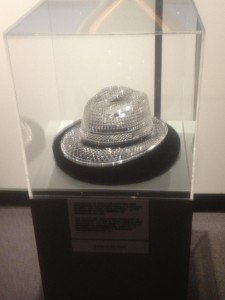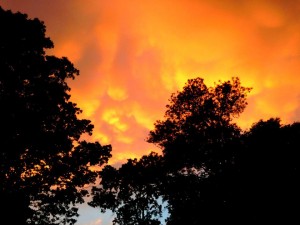(For a much more coherent narrative, see Jeffrey’s wonderful post. What follows is fragmentary and still smoldering.)
The First Essence: Sociability
Where else to start but with the elemental call, the coming together, elements meeting with a wrenching shock that shakes foundations, a wind that blows us away? The physical elements proffer essences that are human-sized and tangible. You touch them, and they touch you back.
The symposium hit us with elements and mixtures disgorged from a magic burrito bowl. In order of appearance: biopolitics, earth, earth-air (spontaneous generation), air, air-water (sea above), water, mud, phlogiston (air-fire), fire, ether. But more even than flames burning in the lecture hall or ether-ish compounds swilled in Hudson Strode’s house, the bests parts of the weekend in ‘Bama were communal: social, joyous (sic), playful, with a wild rage for particularity and passionate attention to form.
An incomplete litany of props seen at the lectern: champagne, orange juice, burning matches, smoke rings, play dough, family pictures, Paradise in West Virginia as well as a gated place of the same name, a lovelorn volcano, Prince Rupert’s drops, the Bookfish (not in my talk!), coal (actually Lowell forgot to bring this but it was there all the same), bees, ants (not really)…
The Second Essence: Beheading the Anthropocene
Cary Wolfe, who kicked us off with a downtown keynote on Th night, talked at one point about a division of opinion he’d noticed in recent conversations about the term “Anthropocene” as a register of human-caused climate change. Might the term be a little too Anthropic, too concerned to keep anthropos at the center, even as it replaces old stories of dominion or progress with tales of tragic loss and coming apocalypse?
We didn’t talk about it at every session, but the need to behead or at least displace the human in the Anthropocene came together for me this weekend. I’m not entirely happy with the term I’ve been auditioning to take its place, the Homogenocene, though I like the non-epic & non-particularistic flavor of that homogenizing term. I like the idea that our eco-catastrophe is, in a sense, a product of too much sameness spreding across our globe. If we want to get past stories that privilege humans, we might not be able to hang on to tragic consolations of radical difference or memories of lost paradise.
But maybe “getting past” isn’t the thing either, and really getting past is an odd thing for those of us committed to premodern literary culture to champion. Nothing goes away, the eco-maxim insists. Even after we’ve gently & humanely (that’s a word I’d like to keep, even if we jettison human-centricity and worry about humanism) severed the neck of old man Anthropos, we’ve still got the body to deal with, in its textual and fleshy forms, all around us, food for worms and other things (as Karl’s talk explored). Humanism’s legacy isn’t as easy to get away from as all that.
I think my preferred term to replace the Anthropocence for our ecological present might well turn out to be shipwreck, but that’s for another time.
The Third Essence: Lines to cross
| Material | Metaphor |
| Reading (narrative) | Analysis (argument) |
| Homogenocene | Anthropocene |
Toward the end of my talk, I offered the suggestion that the intentional, frequent, and self-aware crossing between the first of the three critical pairs in the text box above as my own rough definition of a shared method for ecomaterialist criticism, knowing of course that speaking for a collective of brilliant and idiosyncratic scholars is a tricky business. I’m very sympathetic to counter-suggestions from Eileen and Julian, who aren’t sure the separation between material and metaphor itself is all that tenable. But it’s less the separation or what I was calling, perhaps awkwardly, the “line” between these practices that engages me than the act of crossing between them. It’s the sudden shift, of perspective, of subject matter, even of rhetorical mode, that creates intellectual fire. I think that what humanities scholars do best is perform that jump, the turn from the minutely textual to the wildly general, from tensions inside a single Miltonic word (“prospect,” says Lowell, and so much follows) to the endlessly fecund dance of the organic within and entangled with the inorganic. Moving is more fun when there are boundaries to leap over.
Cary re-opened this question over wine Saturday night amid the deafeningly sexual roars of Alabama frogs on the back porch of the Strode house. He commented, from his anthropological perspective, on what we medieval and early modern literary types do and how it sounds to someone outside these sub-fields. Might, he suggested (though not in these words), the care and patience and gymnastic play with which we read texts blind us, to some extent, to the virtues of direct argument? Might there be some strain between our love of inventive reading and a need for action or argument or even (another word worth saving) agency?
Wine, frogs, a series of wonderful jokes (h/t Valerie Allen) and eventually dancing cut short this conversation on Saturday night, but it’s worth coming back to. I like direct arguments. I like short sentences. These things work. But I’ll also stick up for variety, pushing against the Homogenocene, and for a critical / rhetorical / performative practice that produces as many differences as it can find and create and explore.
Or, in slightly different terms, Jeffrey’s blog post very generously rephrased my comments as an effort “to move beyond the metaphor / materiality impasses native to speaking about the elements,” which I suppose is true enough & even does that great thing that commentary can do in exposing what the original wanted but did not fully articulate. But I also wonder if I should admit to my own attachment to just that “impasse,” to its difficulties and textures. I remain pretty happy inside certain elemental dilemmas and don’t want (or expect) to escape them.
The Fourth Essence: Paradise or Faerie Land? (Note: special pleading here for early modernists)
A very brief elemental turn here to early modern English poetic epics. Lowell said in conversation — perhaps the greatest organizational triumph of this event was the richly supported spaces for conversation: a full 30 min of public exchange after each of the 10 talks, lunches, dinners, late nights, etc — that he didn’t think Milton was a “vibrant materialist” in Jane Bennett’s sense. I quipped back that I thought he was, without working too hard at reconciling vitalist monism with 21c theoretical structures. But, without digging John Rogers’s book off my shelf this morning, it was great to start with Milton. Satanic mines and Edenic “coalitions,” with that unceasing Miltonic interpretive pressure forcing forward.
I only talked about Spenser for a few minutes in my talk, but I spent most of the weekend thinking about Faerie Land. Isn’t Spenser’s allegory-saturated landscape a kind of pre-chewed ecocriticism of the elements? In which all the things we seek, Valerie’s “Airy Somethings” and Anne’s Prince Rupert’s Drops and Sharon’s richly fecund mud and Julian’s wet books and dead poets and Bookfish, are hyper-visual, thrusting their selves and their meanings into our faces? A world in which we can’t not-interpret all the things around us?
I don’t do as much with Spenser or Milton these days as I used to. Maybe I should.
The Fifth Essence: Wit
The person on the bill I knew the least, Chris Barrett, gave the anchor talk to an exhausted and exhilarated audience late Sat afternoon. She wonderfully drew together the medical, physical, poetic, and scientific meanings of “ether” into an inventive knot. Laughter and/as/in anesthetic: the special poignancy of the climate change joke: the salvific dream of painlessness, celebrated in Boston on “Ether Day” in 1846.
Wit, of course, also neatly circles back to the sociable origins of the symposium, the pleasure in play and difference in each of the presentations and conversations during the weekend. These elementals are a witty bunch, it seems to me, and a gang that enjoys intellectual play. Already there’s chatter in the great blue world about moving the next installation in the series to an isolated mountain cabin or a volcano.
Anne’s Pyromena talk ended with Empedocles and the volcano, our initiating elemental philosopher meeting his doom. Via Gaston Bachelard, another shared text for many of us, she invited us to consider that the volcano wants Empedocles, its fiery heat craving his water-filled body. What else would volcanos want? I wondered about the things that connect humans to the elements: feeling and thinking and of course language. Perhaps also plurality and difference? Isn’t the great joy of the four elements always the presence of all the others in each one?
It’s going to be hard to resist trying to put together another symposium like this one. 



Thanks for this great account, Steve. I like its thematic clusters.
I won’t go back and change it, but I realize (esp in light of the little “intercatastrophe” post I did on FB about Noah in his ark) that to move beyond a metaphor/materiality impasse requires, as you state here, an inhabitance within. It’s that pesky Möbius strip again, where the beyond and the inside curve into each other.